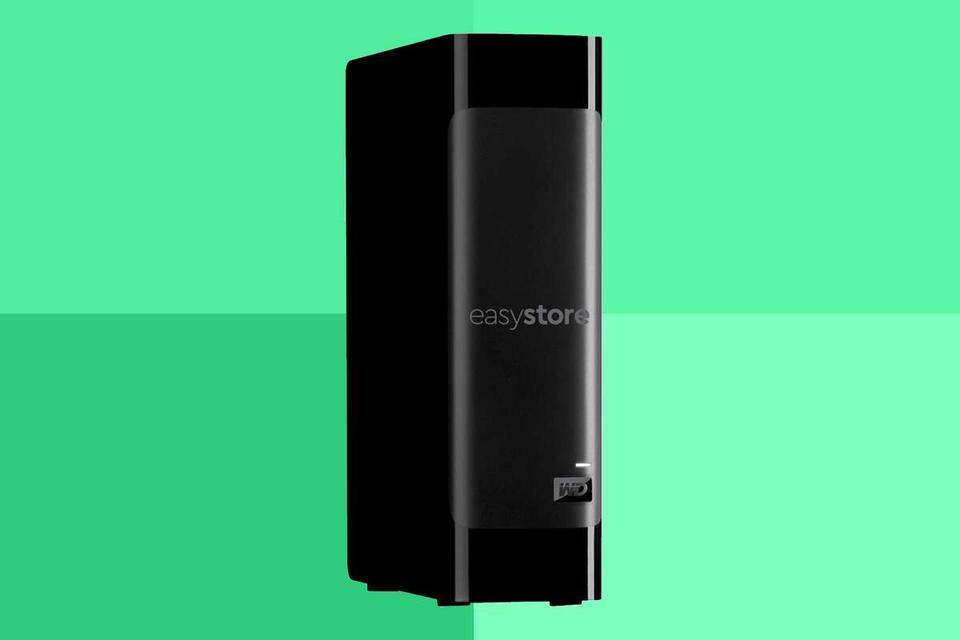www.makeuseof.com 8 Productive Uses for Your External Hard Drive or NAS (Other Than File Storage)
External hard drives and NAS drives are useful devices for storing your files. In fact, they are so useful that it's not uncommon for people to buy more than they actually need. This leads to a situation where everything you own is stored, and there's still plenty of space left over.
If you're wondering what else you can do with an external hard drive or NAS, the answer is quite a lot. Your options increase dramatically if you own a NAS, but even an external hard drive is capable of more than just storing files.
Do You Have an External Hard Drive or NAS?
If you have an external hard drive, the first thing that you should try is converting it to a NAS. NAS—Network Attached Storage—is simply a storage device connected to a network. This means that while you can buy these devices independently, some routers allow you to build your own by connecting a standard external hard drive.
To convert an external hard drive to a NAS, you need a router with both a USB port and file server functionality. The presence of a USB port will be obvious, but you may have to check your router's instructions to determine if it can act as a file server.
If both of these features are present, simply connect the USB cable, access your router's file server settings as per the instructions, and anything present on your external hard drive can now be accessed from your network.
8 Alternative Uses of External Hard Drives and NAS Drives
Here are eight ways to make the most out of your excess storage.

Computers aren't always reliable, making it important to back up your files regularly. Most people perform occasional backups, but many people don't bother with automatic backups. This is a mistake because if your computer breaks at the wrong time, anything saved after the most recent backup is lost. If you have extra storage space, there's no excuse for this. Whether you own an external hard drive or a NAS, setting up automatic backups isn't difficult.
MAKEUSEOF VIDEO OF THE DAYIf you're serious about backing up your important files, you should also consider implementing RAID. RAID stands for Random Array of Inexpensive Disks. It has the potential to offer faster read speeds. But its primary benefit for most people is that it allows you to keep your files in the event of hard drive failure. It achieves this by storing your data on more than one drive. This way, if one crashes, your data is still available. The only downside of RAID is that it does require at least two drives.
A scratch disk is a drive that acts as data storage for programs. When you open a program, temporary files are often created. A scratch disk stores these files so that they don't fill up your computer's hard drive and slow it down. A scratch disk is useful for any computer, but it's primarily used by people who edit videos or use other data-heavy applications. With a scratch disk installed, you can run any program, and your computer's hard drive won't be impacted.
A NAS can be used to create your own personal cloud storage. If you already have a cloud storage account, there are still advantages to creating your own. Personal cloud storage is free and you are only limited by the size of your NAS. It can also provide identical functionality to paid cloud storage, allowing you to sync your devices and access your files anywhere automatically.
Home security systems are increasingly popular thanks to products such as Ring. If you own a NAS, you can also set up your own security system using nothing more than a webcam. You can also do this with cloud storage, but NAS is arguably more suitable. Along with providing large amounts of storage space with no monthly fee, it allows you to record your footage offline, preventing potential privacy concerns.
Standard hard drives are useful for storing media, but a NAS can also be used to stream media and make it accessible from any device. You might store movies or music and then access them on a television or speaker system. Apps such as Plex can also be installed on a NAS. This provides an interface similar to Netflix and makes it easier to access your files. NAS is primarily used to stream media within a home, but it can also be used to stream those files over the web.
Provided your NAS has enough RAM, you can use it to host a virtual machine. Virtual machines can be used for many purposes, including running dangerous apps in an isolated environment and trying out new operating systems. By hosting a virtual machine on a NAS, you can also set up a desktop that can be accessed from any device both in your house and over the internet.
A NAS can be used to torrent files without using your computer. By downloading torrents directly onto your NAS, you not only save space on your computer, it also allows you to torrent files while your computer is off. This allows you to torrent files 24 hours per day. It also allows you to set your torrents to only download when you don't need bandwidth for any other purpose.
Storage Devices Have Many Uses
External hard drives and NAS drives are primarily used for storage. They are ideal if your computer has limited space and as a backup should your computer's hard drive fail. This, however, is just one of their many uses.
If you want to get the most from these devices, it's worth using them for additional purposes. External hard drives are ideal for RAID and scratch disks. Whereas a NAS drive can change how you stream media and provide access to your files from anywhere.
Should You Partition Your Hard Drive? The Pros and Cons Read NextShareTweetShareEmail Related TopicsAbout The AuthorElliot Nesbo(85 Articles Published)Elliot is a freelance tech writer. He primarily writes about fintech and cybersecurity.
MoreFrom Elliot NesboJoin our newsletter for tech tips, reviews, free ebooks, and exclusive deals!








